Wed, 06/18/2014 - 22:58
Kenyatta’s al Shabaab denial inflames Kenya’s divisive discourse
On Tuesday night, Kenyans across the country gathered around TV sets in living rooms, bars and makeshift “viewing centers” in shanty towns and refugee camps to hear the Kenyan president's speech on a recent series of brutal attacks.
Even in a country that’s no stranger to attacks by the Somali Islamist al Shabaab group, the latest assaults -- which killed more than 60 people in the coastal town of Mpeketoni and the nearby Poromoko area -- had the sort of chillingly precise savagery that shocked the nation.
Nearly nine months ago, when al Shabaab conducted a brazen attack on the Westgate mall in Nairobi, Kenyan President Uhuru Kenyatta made a televised address to the nation at the end of the siege, which succinctly captured the grief as well as the resilient spirit of the nation.
But on Tuesday night, there was none of the clarity and gravitas Kenyans have come to expect from their president.
As Kenyatta proceeded to insist that “politically motivated ethnic violence” – and not al Shabaab – was responsible for the recent attacks, there was collective sense of confusion, suspicion and dismay among many Kenyans.
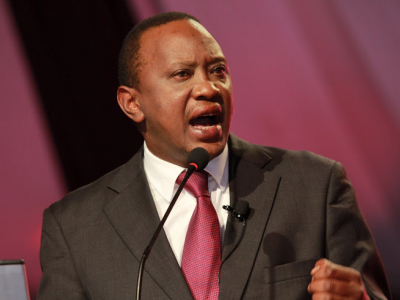
“The president lost an opportunity to be presidential,” said Horn of Africa analyst Abdullahi Halakhe. “It was very partisan and I don’t think it was helping the country at this stage. When a president admits on live TV that internal political groups are responsible, he’s implicitly conveying the message that he’s not in-charge of the situation.”
Kenyan authorities have faced scathing domestic criticism over its handling of security in the wake of the Westgate siege and numerous al Shabaab threats.
The disquieting aspect of Kenyatta’s latest speech was the subtext of ethnically-driven political targeting that, for many Kenyans, harked back to the bad old days of opposition suppression and ethnic violence, a specter that would have serious implications for one of East Africa’s most stable nations.
Family foes and ethnic rivals
In his televised address, Kenyatta did not provide details of the “hate-mongers” responsible for the violence against “a Kenyan community”.
But as reactions to the speech poured in from opposition politicians and commentators, there was little doubt that Kenyans had grasped the text and subtext.
“The President was pointing the finger directly, even without mentioning names, at opposition leader Raila Odinga, who since returning from a three month visit to the United States has led a series of high-profile political rallies to press demands for a national conference on problems afflicting Kenya,” said a columnist in the leading Daily Nation newspaper.
Kenyatta is an ethnic Kikuyu who faces crimes against humanity charges at the ICC (International Criminal Court) for his alleged role in the 2007-2008 ethnically-driven, post-election violence, which killed more than 1,000 people.
Odinga, his arch political rival, is a Luo, who lost to Kenyatta in the 2013 election.
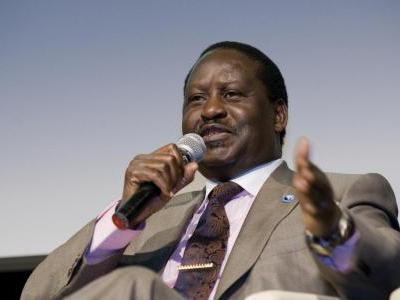
The Kenyatta-Odinga rivalry dates back to the post-independence era when the fathers of the two politicians split over political differences in the 1960s. Odinga has made three unsuccessful bids for the presidency – a post that has never been held by a Luo.
Responding to Kenyatta’s address, Odinga has called the allegations “unfortunate and unjustified” and warned that it would compromise the investigations into the Mpeketoni and Poromoko attacks.
A day after the address, Mpeketoni police chief John Miri said two suspects were arrested in connection to the twin attacks in coastal Kenya, including the owner and driver of a vehicle used the assaults.
Miri himself has just taken up the post as the area’s police chief after his predecessor was dismissed over his handling of the attack. Kenya’s national police chief David Kimaiyo said the dismissed police official would face court charges although details of the charges have not been released. However, Kimaiyo took the opportunity to warn “any officers who [act] against the ethics and oath of office of the national police service.”
Kimaiyo also added that police are holding a third man suspected of “operating social media accounts purportedly used by al Shabaab to claim responsibility” for the attacks.
Denying an al Shabaab claim
An al Qaeda affiliate with a sophisticated media strategy, al Shabaab has claimed the recent attacks via Twitter posts as well as telephone calls to news organizations such as Reuters and AFP.
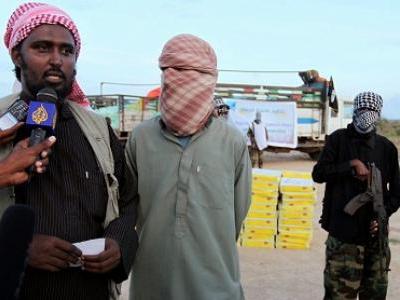
Kenyatta’s speech came as journalists reporting from the remote coastal region of Mpeketoni and Poromoko were gathering testimonies from witnesses pointing to a coordinated al Shabaab attack.
Reporting from Nairobi, FRANCE 24’s Hannah McNeish noted that journalists at the scene had gathered witness accounts of “gunmen who were speaking Somali, flying the al Shabaab flag and they were separating the men from the women, saying they were executing the men in revenge for Kenya’s actions in Somalia. They were also asking people to recite Koranic citations [to prove they were Muslim].”
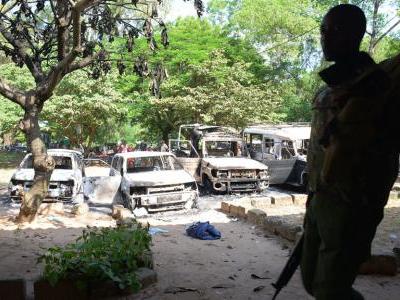
Al Qaeda has long been sensitive to charges of indiscriminate violence against fellow Muslims. During the Westgate attacks, there was at least one case of an al Shabaab militant allowing a Muslim shopper to flee the mall.
Al Shabaab frequently states that its attacks in Kenya are intended to punish the country for sending troops to Somalia in 2011 to confront its Islamist fighters. Kenya has previously said it intends to keep its troops in Somalia.
The recent attacks have sparked anger over the government’s failure to address the security situation in a country that relies heavily on its tourism industry.
Last month, the US, UK and France were evacuated from coastal beach areas following terrorism threats. The evacuations were harshly criticized by the Kenyan authorities who are better known for condemning Western governments’ responses to terror alerts than addressing the threats.
Security experts fear that by shifting the focus of the recent attacks from the very real al Shabaab threat, Kenyan security forces will be further hampered in their investigations.
Violence from the north to the east
But the fact that the recent attacks were conducted in a rural rather than urban setting has also raised some doubts over whether they were al Shabaab attacks.
Despite its reputation for stability, Kenya today is a country wracked by myriad violent incidents that often go uninvestigated and unaddressed.
The northern town of Garissa near the Somali border is the site of so many attacks that survivors and victims’ families simply attribute them to al Shabaab and have stopped seeking explanations or justice.
In the fertile Tana Delta area, cultivators and pastoralists have been locked in struggle for land and political power that periodically flares up – typically around election time.
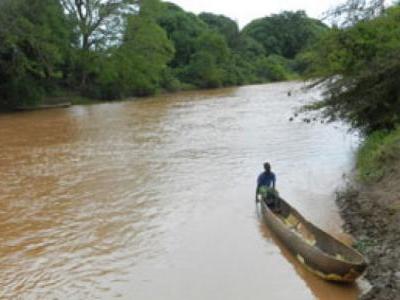
In the coastal region, a marginalised population of mostly Muslims feels threatened by police excesses and the mysterious killings of hardline imams, creating a groundswell of discontent that has been tapped by movements calling for greater autonomy as well as al Shabaab recruiters.
There’s so much violence and blame to go around, that Kenyatta’s quick attribution of the recent attacks to ethnic “hate-mongers” caught many analysts by surprise.
“During the Westgate attack, he managed to conduct himself as a leader above the fray, transcending the country’s divisions,” noted Halakhe. “But this time, it was very partisan. He could have just said we are investigating the attacks and we will get to the bottom of this.”
All eyes on Saba Saba
But while there may be questions surrounding the perpetrators and the motives behind the attack, analysts have no doubt that the political climate in Kenya has been especially charged since Odinga returned home from the US, where he was visiting scholar at Boston University.
His homecoming has been marked by massive political rallies where Odinga has called for a national dialogue on critical issues such as security and terrorism, youth unemployment, tribalism, corruption and the economy.
Responding to Odinga’s criticisms of the government at the rallies, supporters of Kenyatta’s Jubilee coalition took to social media sites in what a Daily Nation columnist described as a seemingly “coordinated offensive to depict the [majority] Kikuyu under attack.”
The rallies and social media discourse comes just weeks before July 7, Kenya’s very own 7/7, which is known as “Saba Saba” after the Kiswahili word for “seven”.
Saba Saba marks the day when, 24 years ago, former Kenyan strongman Daniel Arap Moi brutally crushed pro-democracy demonstrations. Odinga was one of the senior politicians who were detained without trial following the protests.
Into this charged political atmosphere, Kenyatta’s recent comments have raised fears of a very bitter political season – or worse – in the days to come. “The political temperature has already gone up. On social media platforms it feels like it’s pre-2007,” said Halakhe, referring to the divisive discourse in the lead-up to the disputed elections which led to deadly ethnic violence. “For the president to come up with this statement in such a polarizing environment will be very dangerous in my opinion. It adds fuel to an already perilous situation.”
Even in a country that’s no stranger to attacks by the Somali Islamist al Shabaab group, the latest assaults -- which killed more than 60 people in the coastal town of Mpeketoni and the nearby Poromoko area -- had the sort of chillingly precise savagery that shocked the nation.
Nearly nine months ago, when al Shabaab conducted a brazen attack on the Westgate mall in Nairobi, Kenyan President Uhuru Kenyatta made a televised address to the nation at the end of the siege, which succinctly captured the grief as well as the resilient spirit of the nation.
But on Tuesday night, there was none of the clarity and gravitas Kenyans have come to expect from their president.
As Kenyatta proceeded to insist that “politically motivated ethnic violence” – and not al Shabaab – was responsible for the recent attacks, there was collective sense of confusion, suspicion and dismay among many Kenyans.

“The president lost an opportunity to be presidential,” said Horn of Africa analyst Abdullahi Halakhe. “It was very partisan and I don’t think it was helping the country at this stage. When a president admits on live TV that internal political groups are responsible, he’s implicitly conveying the message that he’s not in-charge of the situation.”
Kenyan authorities have faced scathing domestic criticism over its handling of security in the wake of the Westgate siege and numerous al Shabaab threats.
The disquieting aspect of Kenyatta’s latest speech was the subtext of ethnically-driven political targeting that, for many Kenyans, harked back to the bad old days of opposition suppression and ethnic violence, a specter that would have serious implications for one of East Africa’s most stable nations.
Family foes and ethnic rivals
In his televised address, Kenyatta did not provide details of the “hate-mongers” responsible for the violence against “a Kenyan community”.
But as reactions to the speech poured in from opposition politicians and commentators, there was little doubt that Kenyans had grasped the text and subtext.
“The President was pointing the finger directly, even without mentioning names, at opposition leader Raila Odinga, who since returning from a three month visit to the United States has led a series of high-profile political rallies to press demands for a national conference on problems afflicting Kenya,” said a columnist in the leading Daily Nation newspaper.
Kenyatta is an ethnic Kikuyu who faces crimes against humanity charges at the ICC (International Criminal Court) for his alleged role in the 2007-2008 ethnically-driven, post-election violence, which killed more than 1,000 people.
Odinga, his arch political rival, is a Luo, who lost to Kenyatta in the 2013 election.

The Kenyatta-Odinga rivalry dates back to the post-independence era when the fathers of the two politicians split over political differences in the 1960s. Odinga has made three unsuccessful bids for the presidency – a post that has never been held by a Luo.
Responding to Kenyatta’s address, Odinga has called the allegations “unfortunate and unjustified” and warned that it would compromise the investigations into the Mpeketoni and Poromoko attacks.
A day after the address, Mpeketoni police chief John Miri said two suspects were arrested in connection to the twin attacks in coastal Kenya, including the owner and driver of a vehicle used the assaults.
Miri himself has just taken up the post as the area’s police chief after his predecessor was dismissed over his handling of the attack. Kenya’s national police chief David Kimaiyo said the dismissed police official would face court charges although details of the charges have not been released. However, Kimaiyo took the opportunity to warn “any officers who [act] against the ethics and oath of office of the national police service.”
Kimaiyo also added that police are holding a third man suspected of “operating social media accounts purportedly used by al Shabaab to claim responsibility” for the attacks.
Denying an al Shabaab claim
An al Qaeda affiliate with a sophisticated media strategy, al Shabaab has claimed the recent attacks via Twitter posts as well as telephone calls to news organizations such as Reuters and AFP.

Kenyatta’s speech came as journalists reporting from the remote coastal region of Mpeketoni and Poromoko were gathering testimonies from witnesses pointing to a coordinated al Shabaab attack.
Reporting from Nairobi, FRANCE 24’s Hannah McNeish noted that journalists at the scene had gathered witness accounts of “gunmen who were speaking Somali, flying the al Shabaab flag and they were separating the men from the women, saying they were executing the men in revenge for Kenya’s actions in Somalia. They were also asking people to recite Koranic citations [to prove they were Muslim].”

Al Qaeda has long been sensitive to charges of indiscriminate violence against fellow Muslims. During the Westgate attacks, there was at least one case of an al Shabaab militant allowing a Muslim shopper to flee the mall.
Al Shabaab frequently states that its attacks in Kenya are intended to punish the country for sending troops to Somalia in 2011 to confront its Islamist fighters. Kenya has previously said it intends to keep its troops in Somalia.
The recent attacks have sparked anger over the government’s failure to address the security situation in a country that relies heavily on its tourism industry.
Last month, the US, UK and France were evacuated from coastal beach areas following terrorism threats. The evacuations were harshly criticized by the Kenyan authorities who are better known for condemning Western governments’ responses to terror alerts than addressing the threats.
Security experts fear that by shifting the focus of the recent attacks from the very real al Shabaab threat, Kenyan security forces will be further hampered in their investigations.
Violence from the north to the east
But the fact that the recent attacks were conducted in a rural rather than urban setting has also raised some doubts over whether they were al Shabaab attacks.
Despite its reputation for stability, Kenya today is a country wracked by myriad violent incidents that often go uninvestigated and unaddressed.
The northern town of Garissa near the Somali border is the site of so many attacks that survivors and victims’ families simply attribute them to al Shabaab and have stopped seeking explanations or justice.
In the fertile Tana Delta area, cultivators and pastoralists have been locked in struggle for land and political power that periodically flares up – typically around election time.

In the coastal region, a marginalised population of mostly Muslims feels threatened by police excesses and the mysterious killings of hardline imams, creating a groundswell of discontent that has been tapped by movements calling for greater autonomy as well as al Shabaab recruiters.
There’s so much violence and blame to go around, that Kenyatta’s quick attribution of the recent attacks to ethnic “hate-mongers” caught many analysts by surprise.
“During the Westgate attack, he managed to conduct himself as a leader above the fray, transcending the country’s divisions,” noted Halakhe. “But this time, it was very partisan. He could have just said we are investigating the attacks and we will get to the bottom of this.”
All eyes on Saba Saba
But while there may be questions surrounding the perpetrators and the motives behind the attack, analysts have no doubt that the political climate in Kenya has been especially charged since Odinga returned home from the US, where he was visiting scholar at Boston University.
His homecoming has been marked by massive political rallies where Odinga has called for a national dialogue on critical issues such as security and terrorism, youth unemployment, tribalism, corruption and the economy.
Responding to Odinga’s criticisms of the government at the rallies, supporters of Kenyatta’s Jubilee coalition took to social media sites in what a Daily Nation columnist described as a seemingly “coordinated offensive to depict the [majority] Kikuyu under attack.”
The rallies and social media discourse comes just weeks before July 7, Kenya’s very own 7/7, which is known as “Saba Saba” after the Kiswahili word for “seven”.
Saba Saba marks the day when, 24 years ago, former Kenyan strongman Daniel Arap Moi brutally crushed pro-democracy demonstrations. Odinga was one of the senior politicians who were detained without trial following the protests.
Into this charged political atmosphere, Kenyatta’s recent comments have raised fears of a very bitter political season – or worse – in the days to come. “The political temperature has already gone up. On social media platforms it feels like it’s pre-2007,” said Halakhe, referring to the divisive discourse in the lead-up to the disputed elections which led to deadly ethnic violence. “For the president to come up with this statement in such a polarizing environment will be very dangerous in my opinion. It adds fuel to an already perilous situation.”
Tags for all blogs :
Comments or opinions expressed on this blog are those of the individual contributors only, and do not necessarily represent the views of FRANCE 24. The content on this blog is provided on an "as-is" basis. FRANCE 24 is not liable for any damages whatsoever arising out of the content or use of this blog.




1 Comments
Post new comment